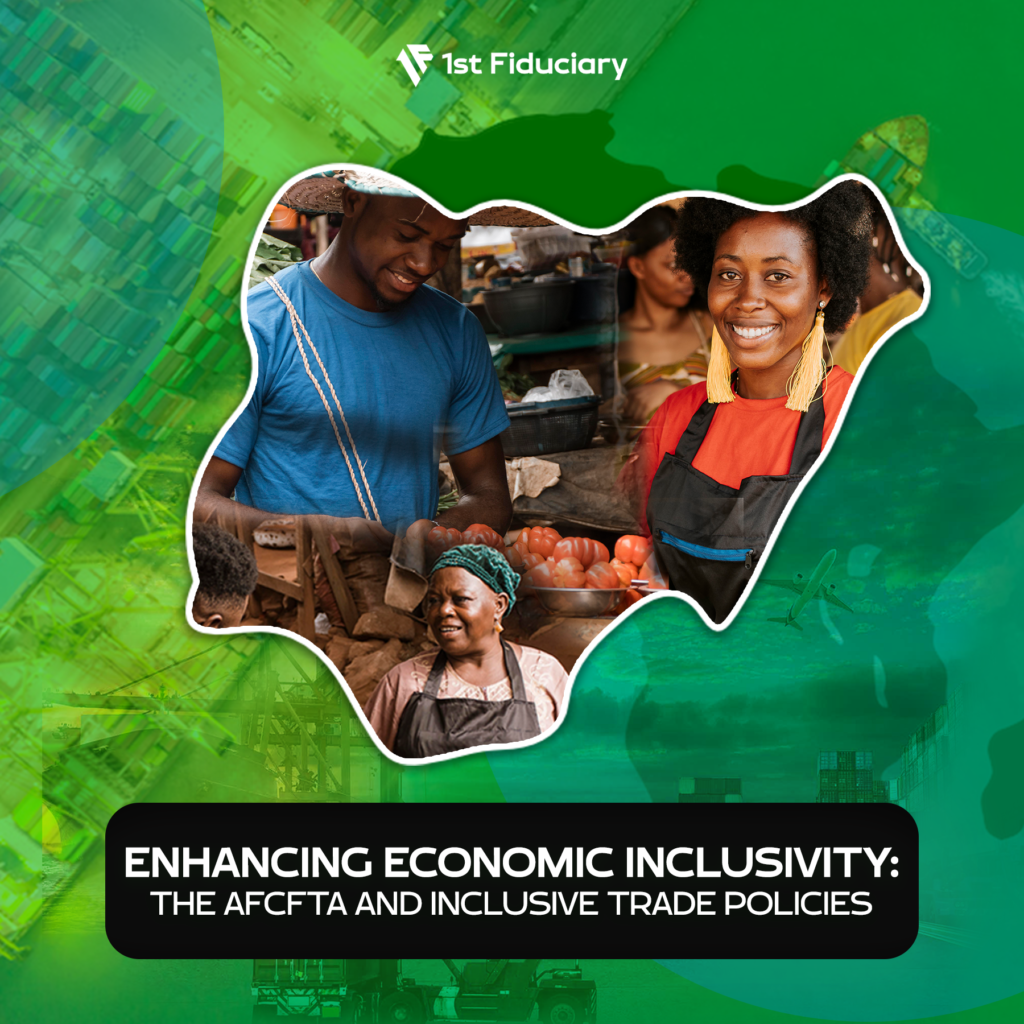Enhancing Economic Inclusivity: The AfCFTA and Inclusive Trade Policies
The African Continental Free Trade Area (AfCFTA) represents a beacon of hope for the continent’s economic growth and inclusion. This ambitious initiative, led by the African Union seeks to establish the world’s largest free trade zone, encompassing 55 African countries with a combined GDP of more than $3.4 trillion. However, the AfCFTA’s success depends not only on tariff reductions and market liberalization but also on the implementation of inclusive trade policies that ensure equitable participation and benefits for all stakeholders.
The primary goals of the AfCFTA includes the promotion of economic expansion, employment generation, and poverty reduction throughout the continent. AfCFTA intends to promote a more competitive business environment, lessen reliance on external markets, and increase intra-African trade, which is currently at a modest 15%, by eliminating tariffs on 90% of goods traded between member states. In addition, the agreement aims to expedite customs processes, ease cross-border investments, and advance industrialization, all of which will strengthen Africa’s manufacturing capacities and raise its standing in the world economy.
However, the success of the AfCFTA depends not just on trade liberalization but also on making sure that everyone can benefit from it. The pursuit of inclusive trade policies is crucial in this regard. Beyond just encouraging economic expansion, inclusive trade policies work to build a supportive atmosphere in which underrepresented groups—such as women, young people, smallholder farmers, and informal traders—can actively engage in and profit from trade activities. Some of the key pillars of inclusive trade policies under AfCFTA include:
